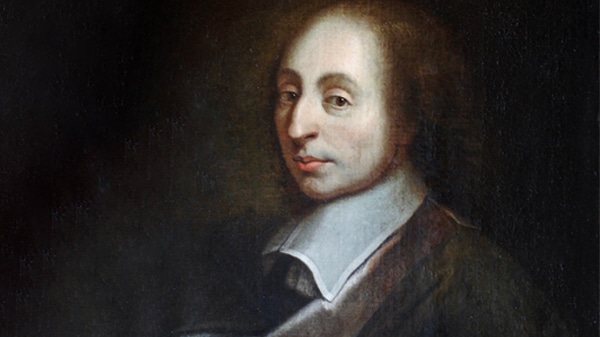Blaise Pascal (1623-1662), contemporary of René Descartes, is one of the most important and certainly most perceptive French thinkers. Mathematician and philosopher, and as a philosopher - like Descartes - thoroughly familiar with scepticism, Pascal also devoted himself to logical, physical, but later above all theological questions.
In sharp opposition to the Jesuits, who were enormously influential in the 17th century, and especially to Jesuit casuistry (cf. his Lettres Provinciales, a prime example of astute polemic), he sided with the Augustinian-influenced movement of French Jansenism (with the monastery of Port-Royal as its intellectual centre) and devoted himself to a life of religious spirituality and asceticism.
The famous Pensées, a defence of Christianity against sceptics and atheists consisting of aphorisms and reflections, as well as a basic book of sceptical anthropology, owe much to his religiousness. This fragmentary ensemble of texts is still considered a special challenge for philosophers and philologists in French academic life.
The lecture will give an overview of Pascal's life and work, his philosophy and theology, and will also deal, at least in passing, with what is probably his most commented on and most difficult text, the famous Pascal's Wager in the Pensées.
Gisela Schlüter
